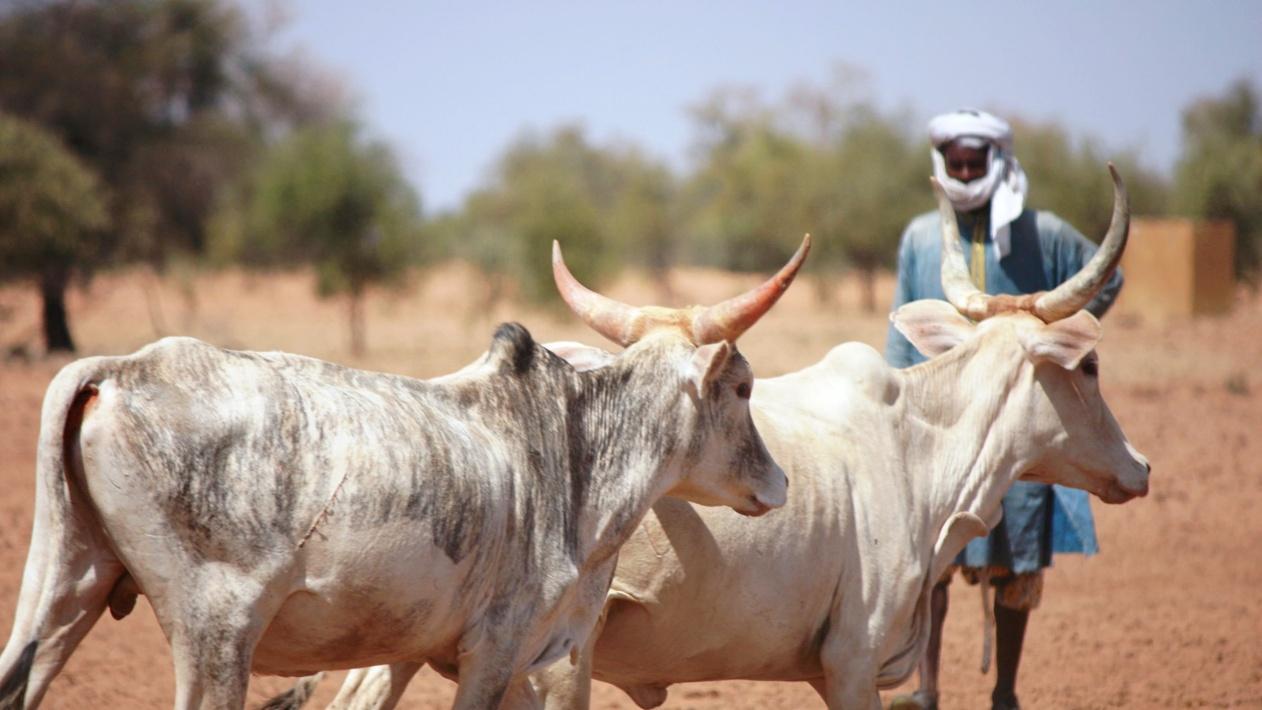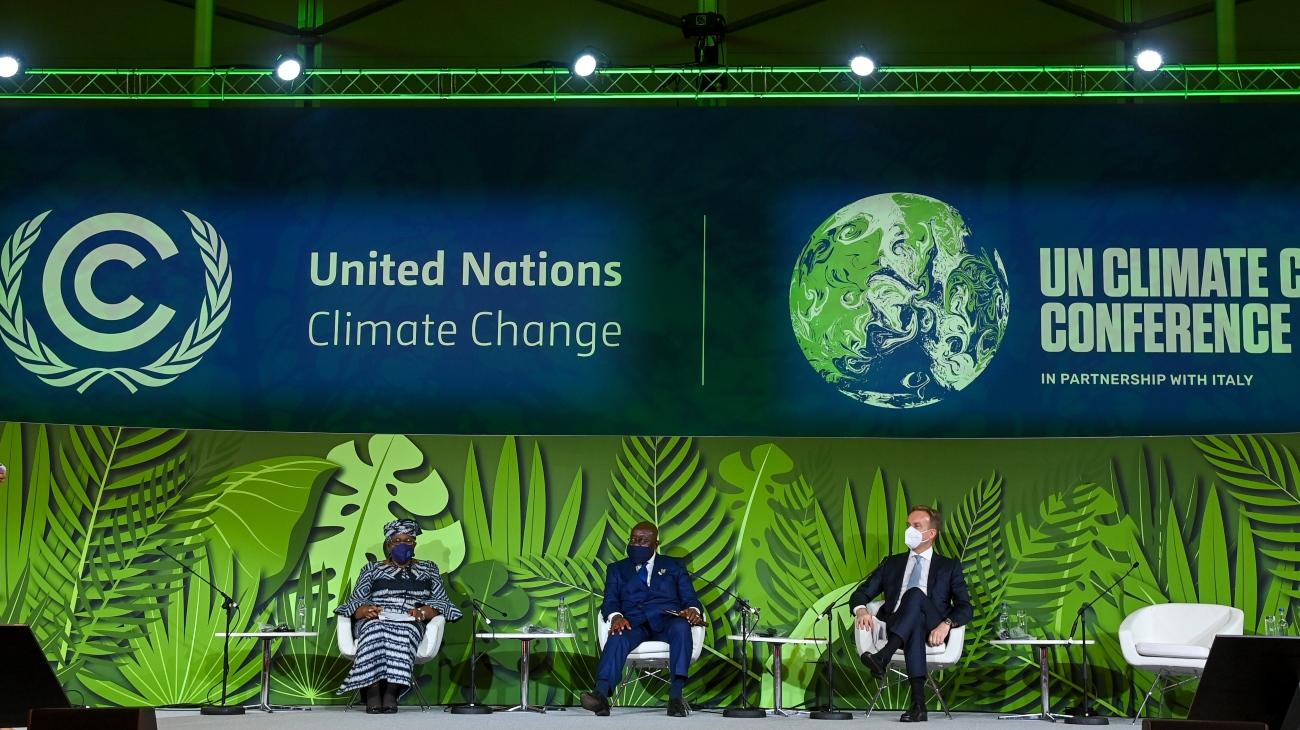The emergence of new zoonotic diseases remains virtually impossible to predict, but exposure to wildlife, abundant animal populations and the increasing destruction of natural habitats make them certain. Should a zoonotic outbreak emerge in Africa with pandemic potential, what are the continent’s strategies to prepare itself and the world? The first post in a new series explores the networks strengthening communication and trust between governments, local communities, health workers and scientists.
This article is part of the series “Rethinking zoonoses, the environment and epidemics in Africa”, which examines the effect of changing relationships between human, animal and environmental health on epidemic risk.
Over the past decade, outbreaks of new or re-emerging infectious diseases with epidemic potential have taken their toll on health systems in many African countries. The devastating Ebola outbreaks in West Africa highlighted how ill-prepared public health systems were to rapidly identify and control human-human infections originating from animals (zoonotic). Together with the recent COVID-19 pandemic, this highlights the need for strengthening Africa’s public health preparedness and response systems.
Approximately 60% of known human pathogens (organisms causing disease) have zoonotic origins. Zoonotic origin and zoonoses are not necessarily the same, as most human pathogens with zoonotic origin no longer have direct epidemiological links to animal sources, while naturally transmissible infections from animals to humans occur sporadically from an animal reservoir, where pathogens inside an animal live and reproduce. Then there are also reverse zoonoses, when human diseases infect animals. Emerging infectious diseases cover a wide spectrum of events from antimicrobial resistance, variance, shifting geographies or host switching, and occasionally truly novel pathogens evolve and infect humans from a “spill-over” event, occurring when susceptible humans are exposed to the infectious agent.
Traditionally, attempts at preventing or controlling zoonoses have been from narrow disciplinary perspectives. Clinical communities often have limited interest or knowledge of the source of a disease, while veterinary authorities try to reduce incidences of diseases that are potentially zoonotic in animal populations, primarily domestic animals. But we are becoming increasingly aware that such a strategy is ineffective in tackling the complex issue of zoonoses. It is now clear that tackling zoonotic origin emergent infections and endemic zoonosis requires a One Health approach, which acknowledges the connectedness between people, animals and the environment.
A major concern in emergent zoonotic pathogens and zoonosis is that few data are collected, even for prominent diseases such as tuberculosis. Excepting a few diseases (such as rabies), animal health databases are equally deficient. Zoonoses are rare events for most clinicians and mostly derived from animal-based foods and vectors – living organisms such as mosquitoes or lice. To put this in perspective, the majority of direct and indirect emergent viral zoonosis, which mainly originate in rodents, may have only accounted for about 60,000 human deaths globally over the last century, except for Lassa fever virus, which may have accounted for about 250,000 deaths. However, over the same time-period, about 67 million viral-origin human-to-human deaths occurred from emergent pathogens, with links to evolution in animals, such as viral influenzas from domestic pigs and domestic poultry/semi-wild ducks.
The spill-over or emergence of novel pathogens originating from animals is therefore virtually impossible to detect or predict, as evidenced by COVID-19. It will certainly occur in the future, given our super-abundant domestic animal population, reliance on animal-based foods, increasing destruction of natural habitats and exposure to wildlife.
Identification, response and mitigation of zoonoses
What strategies does Africa have to prepare itself, and the world, against the next potential emergent zoonotic event? Our One Health research, training and capacity development network, PANDORA-ID-NET, is the first novel approach to prepare Africa for identification, response and mitigation of zoonoses. Established as an Africa-Europe partnership for tackling emerging and re-emerging infections with epidemic potential, this network works effectively and equitably across African regions, fully engaging with national disease control authorities and public health institutes, liaising with the Nigeria CDC, the Africa CDC and global agencies. Importantly, PANDORA-ID-NET enables strengthening of communication, establishment of trust and “unity of purpose” between governments, local communities, health workers and scientists.
Africa’s diagnostic and surveillance capacities have been expanded due to increased investments arising from COVID-19 responses. Ensuring capacity across multiple diseases and multiple hosts gives us a fair chance of finding pathogens that may have pandemic potential. This should include monitoring humans, animals, vectors and involve environmental testing. Testing systems for many zoonoses are not yet robust, but new ones are coming into use and PCR, which detects small amounts of a pathogen’s DNA, has been effectively used for many diseases, including COVID-19. The rapid scaling up of testing and surveillance during the pandemic were examples of what can be done with political will.
Surveillance using whole genome sequencing has been a success story for Africa, due to the efforts of the Africa CDC, governments and partners, and the innovative use of existing capacities, particularly in response to COVID-19 and Ebola, although challenges remain.
Africa now has backing and funding from policymakers. The hope is that a cohesive health, agriculture and veterinary response will arise. Africa CDC have published a framework for One Health practices in public health institutions.
Currently absent, however, is the capacity and infrastructure for African countries to develop their own therapeutics and vaccines. New initiatives like the Africa CDC Partnerships for African Vaccine Manufacture have begun the process of establishing infrastructure in West, East and Southern Africa for vaccine and treatments manufacturing capacity. Cuba announced its support to establish manufacturing of their COVID-19 vaccines Soberana and Abdala in partner countries. BioNTech will also manufacture vaccines in Senegal and Rwanda.
How can we recognise what preparedness strategies are currently in place across Africa? PANDORA-ID-NET identified areas of capacity around zoonotic diseases, focusing on the sub-Saharan African region by analysing the WHO’s Joint External Evaluations (JEEs), which seek to assess how ready a country is for new public health issues. These evaluations include looking at surveillance systems in place, the number of people working on zoonotic diseases and collaboration between public health agencies. The OIE has created a similar evaluation for veterinary practices.
Research into preparedness strategies is also key. PANDORA-ID-NET is building a picture of how and where zoonoses affect humans and animals, including for Chikungunya, Lassa Fever, Zika and bovine tuberculosis. The network is also involved in laboratory capacity development, the expansion of mobile device-based surveillance systems and development of a multi-species Lassa fever diagnostic test. Training through workshops in person and online is also integral. Further, PANDORA-ID-NET is providing rapid response to emerging disease situations, including zoonoses, such as the Chikungunya outbreak in the Republic of Congo, and COVID-19 in Zambia.
What is clear is that whatever disease comes next, we must build on existing capacities and expertise now, as evidenced by Africa’s COVID-19 response. Equity, trust and the quality of priority settings are critical aspects of One Health emergency and disease outbreak plans. Ongoing and new initiatives also require the long-term sustainability of what is being built, and funder and political commitment will be essential.
Learn more about PANDORA-ID-NET and read its list of publications. Visit the One Health research pages on its Global Health Network hub.
Photo by RF._.studio from Pexels





